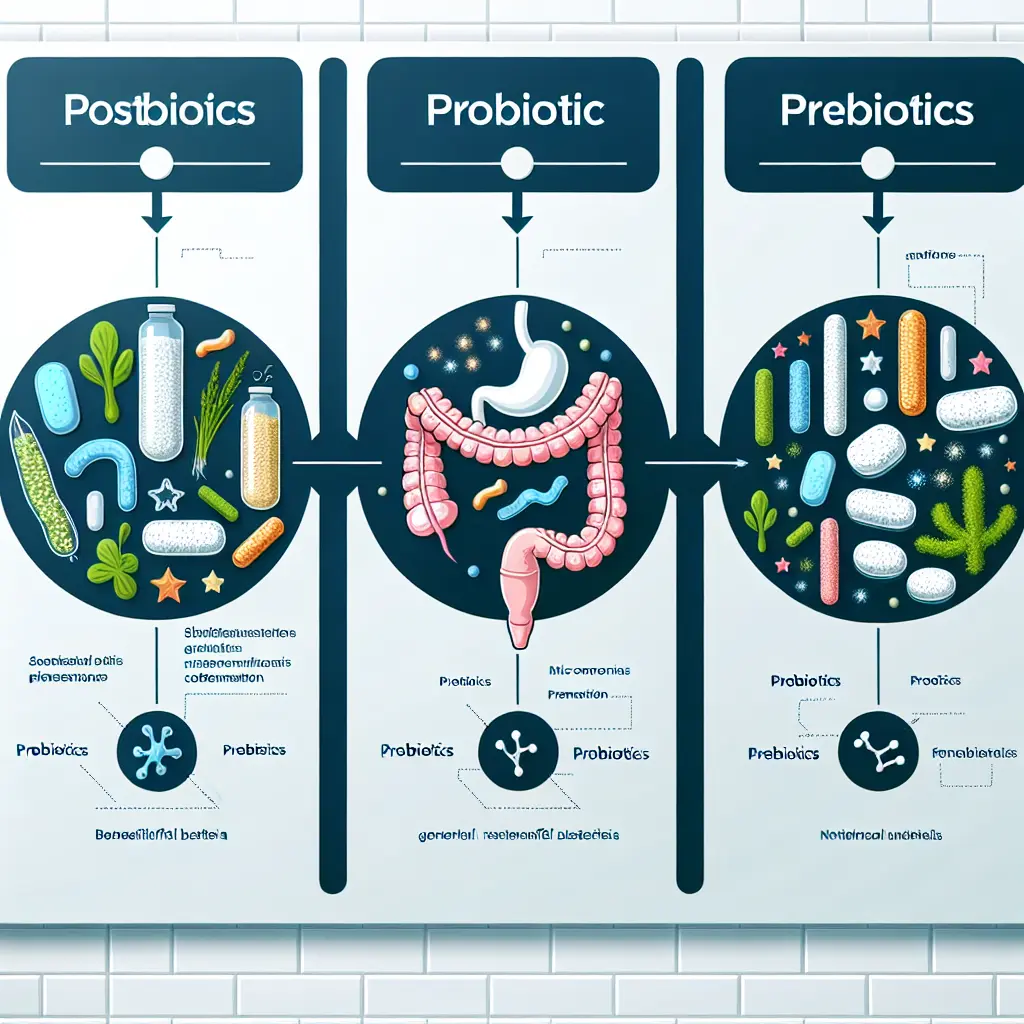
In the bustling world of health and wellness, understanding the intricacies of how we can optimize our gut health is becoming increasingly important. This is where the trio of biotics—postbiotics, probiotics, and prebiotics—play a pivotal role. The distinctions and benefits of each, particularly in the realms of nutrition science and dietary supplements, are critical for anyone looking to enhance their digestive health, microbiome health, and overall well-being.
What Are Probiotics?
Probiotics are live microorganisms, often referred to as 'good' or 'helpful' bacteria, that are believed to provide health benefits when consumed in adequate amounts. Found in fermented foods like yogurt, sauerkraut, and kefir, as well as in probiotic supplements, these bacteria are essential for maintaining a healthy balance of gut flora. The benefits of probiotics are vast, ranging from enhancing digestive health to bolstering the immune system (Source: Mayo Clinic).
What Are Prebiotics?
Prebiotics are types of dietary fiber that feed the friendly bacteria in the gut. Essentially, they act as fuel for the beneficial bacteria and are found in foods like bananas, onions, garlic, and leeks. Prebiotics help improve gastrointestinal health, enhance calcium absorption, and potentially aid in weight management (Source: Cleveland Clinic).
What Are Postbiotics?
Postbiotics are a relatively new area of interest. They are bioactive compounds produced during the fermentation process of probiotics. These substances include enzymes, peptides, polysaccharides, and organic acids. Unlike probiotics, postbiotics are not living organisms but rather the metabolic byproducts that have been found to possess health-promoting properties, including anti-inflammatory and antioxidant effects (Source: International Journal of Molecular Sciences).
Differences Between Postbiotics, Probiotics, and Prebiotics
While probiotics are living microbes, prebiotics are the food that nurtures them. Postbiotics, on the other hand, are the beneficial byproducts created when probiotics metabolize prebiotics. Each plays a unique role in gut health, but they all contribute to a balanced microbiome and overall health.
Benefits of Each
Probiotics Benefits: They improve digestive functions, enhance immune response, and may reduce the severity of certain allergies and eczemas (Source: National Institutes of Health).
Prebiotics Benefits: These fibers promote a healthy gut by boosting the growth of beneficial bacteria, which enhances digestion and metabolism (Source: Journal of Nutrition).
Postbiotics Benefits: Recent studies suggest that postbiotics may help regulate the immune system and protect against infections by modulating gut barrier functions (Source: Frontiers in Nutrition).
Recent News and Updates Related to Probiotics and Gut Health
Brighter Skin & Fewer Age Spots: Probiotic supplements can influence skin health by impacting gut flora, potentially leading to brighter skin and fewer age spots (Source: Dermatology Times).
Who Should Take Probiotics: Individuals with digestive issues, those who have taken antibiotics recently, and people trying to boost their immune system might benefit significantly from probiotic supplements (Source: Harvard Health).
Olympic Athletes and Gut Health: There's growing evidence that optimized gut microbiome can significantly enhance athletic performance by improving nutrient absorption and reducing oxidative stress (Source: Sports Medicine).
Gut Microbiome and Competitive Edge: Athletes could gain a competitive advantage through tailored probiotic or prebiotic supplementation aimed at optimizing the composition of their gut microbiota (Source: Journal of Strength and Conditioning Research).
Health-Conscious Soda Lines: In the beverage industry, companies like Poppi are introducing probiotic sodas as a healthier alternative to traditional soft drinks, although some have faced legal challenges over health claims (Source: Food Navigator).
Microbiome Research and Elite Athletes: Research is increasingly focusing on how athletes' gut microbiomes may be tailored for peak performance, suggesting another layer of strategy in sports science (Source: Gut Microbes).
Conclusion
The fascinating world of biotics—postbiotics, probiotics, and prebiotics—offers promising avenues for enhancing health and wellness. From supporting our digestive system to influencing our immune system and even potentially boosting athletic performance, these dietary supplements are at the forefront of nutrition science and gut flora optimization. As research evolves, so does our understanding of how integral these components are to our overall health.
As we continue to uncover more about these powerful biotic forms, embracing a balanced diet rich in prebiotics, coupled with judicious use of probiotic and postbiotic supplements, could be key to unlocking superior health outcomes.
Stay healthy, Landon Mitchell